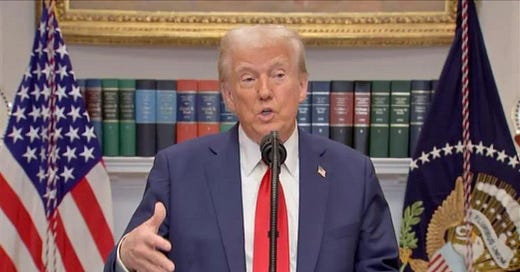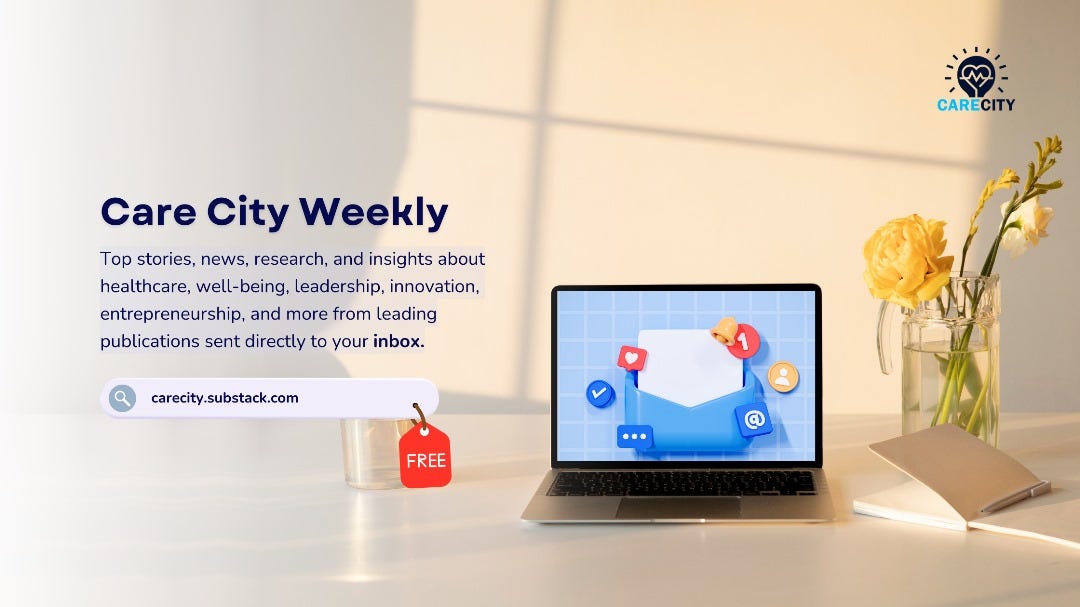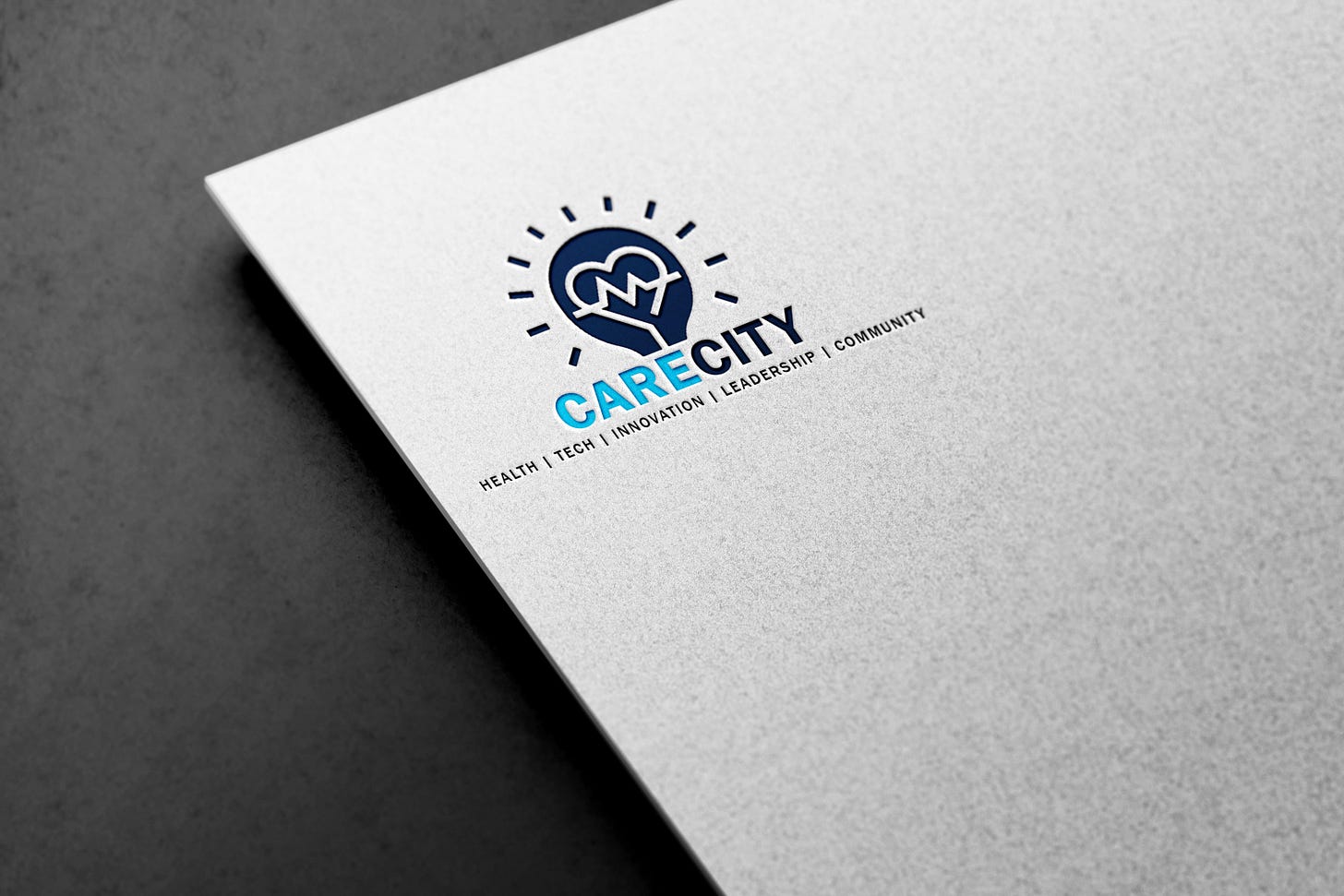Why Is The United States Of America Leaving The World Health Organisation?
The implications for global health and Africa + A brief report of our maiden Healthcare Leadership And Innovation Webinar and more...
Hello to all our wonderful readers!
Welcome to 2025.
This is the first edition of Care City Weekly in 2025, and we're so happy to have you with us.
How is your year going?
Fast, I hear someone say.
Yes, very fast!
Straight into today's business…
Why Is The United States Of America Leaving The World Health Organisation?
A brief report on our just-concluded Healthcare Leadership and Innovation Webinar.
The latest from Care City.
A rich curated list of must-reads just for you.
If you've not subscribed, please do so.
It's free; you can share it with your friends and network.
Why Is The United States Of America Leaving The World Health Organisation?
Donald Trump's decision is not being made in isolation. The president has his reasons, and chief of them are:
The World Health Organization (WHO) faced significant criticism for its handling of the COVID-19 pandemic, particularly regarding its perceived shortcomings in response efforts and overall management. One of the major points of discontent was its failure to implement urgently needed reforms in its structures and processes, which many experts argued could have improved its effectiveness in managing global health crises.
Additionally, the financial dynamics between the WHO and its member states raised concerns, particularly regarding the payments made by the United States, which is the largest contributor to the organisation. The U.S. has highlighted the burden of its financial commitments, believing those payments to be disproportionately high compared to contributions made by other nations. In particular, critics pointed out that China's contributions to the WHO are significantly lower than those of the United States. This disparity fueled accusations, particularly during the Trump administration, suggesting that the WHO exhibited bias in its guidance and messaging during the outbreak, reflecting an undue influence from China.
Moreover, the WHO struggled to assert its independence from the political pressures exerted by its member states. This challenge hindered the organisation's ability to respond effectively to the pandemic, leading to allegations that its actions and recommendations were swayed by the interests of powerful countries, thereby compromising its role as a neutral authority in global health governance.
Are these solid enough reasons for the United States to want to leave the World Health Organisation and shake global health to its roots?
The United States was instrumental in founding the World Health Organisation, an agency of the United Nations, and has contributed greatly to it for decades.
If The United States leaves The World Health Organisation, WHO could see a fifth of its budget disappear!
Now, that's a whole lot.
A Brief Report On Our Just Concluded Maiden Healthcare Leadership And Innovation Webinar
"We held our maiden Healthcare Leadership and Innovation Webinar last week Saturday, which was a big success. The webinar lasted slightly over two hours, and participants were excited to learn how artificial intelligence can be used to expand access to quality and affordable healthcare in Africa. Our guest speaker, Dr Onyeka Onwughai, a Pharmacist and innovator, drew from his experience building digital health-enabled solutions in Africa to explain to participants the various ways artificial intelligence can be used to provide quality and affordable healthcare in regions that didn't have adequate access to certain healthcare services."
Latest From Care City
Leading Yourself First
"Before going out to lead a team or anyone, you must be on the path to mastering yourself. Leading yourself simply means influencing yourself to do the right things that make you a better person. In leading yourself, you must be true to yourself. You must understand your abilities, your weaknesses and potential. You must be in control of yourself. Attempting to lead others when you don't have control of yourself is a disaster waiting to happen."
Addressing Stigma Through Education: Empowering Communities To Transform Healthcare In Africa
"Stigma refers to the negative judgments people make about others based on particular traits, qualities or healthcare conditions. Having our attributes, complexities, and health challenges reduced to a single label can be deeply distressing. How we talk about individuals and their health conditions plays a crucial role in shaping societal stigma."
How Virtual And Mixed Reality Are Enhancing Healthcare Practice And Delivery In The Modern World
"The future of VR and MR in healthcare appears promising, with technological advances making these systems more accessible and powerful. The integration of artificial intelligence promises to create more personalised and adaptive healthcare solutions, while improvements in hardware are making VR and MR devices more comfortable and practical for extended use."
What You Need To Know About Human Metapneumovirus (HMPV)
"A recent surge in cases of HMPV (Human Metapneumonia) in China has brought back memories of the COVID-19 pandemic, with speculations on social media comparing HMPV to COVID-19 and the fact that it's occurring in China. However, experts have communicated that HMPV differs significantly from COVID-19 and is not a virus with pandemic potential."
How HelpMum Is Using Artificial Intelligence To Improve Maternal And Infant Health In Africa
"Nigeria faces a significant health crisis, with approximately 2,300 children under the age of five and 145 women dying each day due to preventable causes. This alarming statistic makes Nigeria the world's second-largest contributor to under-five and maternal mortality. A multitude of factors contribute to these high rates, including inadequate access to quality healthcare services, malnutrition, and a lack of education on maternal and child health. In Nigeria, about one in five children suffers from chronic malnutrition, which significantly increases the risk of mortality from common infections and illnesses."
What To Read

Imagine A World Without Needles!
"Our goal is to provide personalised, safe, and comfortable treatment options to millions while also contributing to environmental sustainability by reducing the hazardous waste generated by conventional injections. Flowbeam is trying to solve a very old problem. Or trying to bring a solution to something we didn’t even know was a problem—hypodermic needle."
Neuralink Brain Implant: Third Human Being Has Received The Implant
"Neuralink Corp.'s brain-computer device has been implanted in a third patient and the company has plans for about 20 to 30 more implants in 2025, founder Elon Musk said "
NVIDIA Partners With Industry Leaders To Advance Genomics, Drug Discovery And Healthcare
"NVIDIA announced new partnerships to transform the $10 trillion healthcare and life sciences industry by accelerating drug discovery, enhancing genomic research and pioneering advanced healthcare services with agentic and generative AI."
Maternal Mortality Is a Crisis. This Founder Is Training a New Generation of Doulas to End It
"Inspiration struck Latham Thomas 22 years ago. That's when she found out she was pregnant with her son, Fulano. "He's the senior in college, right over there," she says, pointing to a young man sitting alone at a table in a Brooklyn event space, her mouth breaking into a smile the moment her eyes land on him."
And that's a wrap.
Hope you enjoyed it (I bet you didn’t want it to end)
If you did enjoy it, why not drop a like and comment (join the discussion)?
You can help us grow the publication by sharing with your network and:
Join our Substack community and immerse yourself in the discussions.
Follow us on social media and stay updated on all our activities.
Join our WhatsApp community and receive all direct updates quickly.
Read our articles, posts and stories and stay inspired, informed and intelligent.
The future belongs to you and all the inspiration you need to do and become more lives here!
See you next week.








